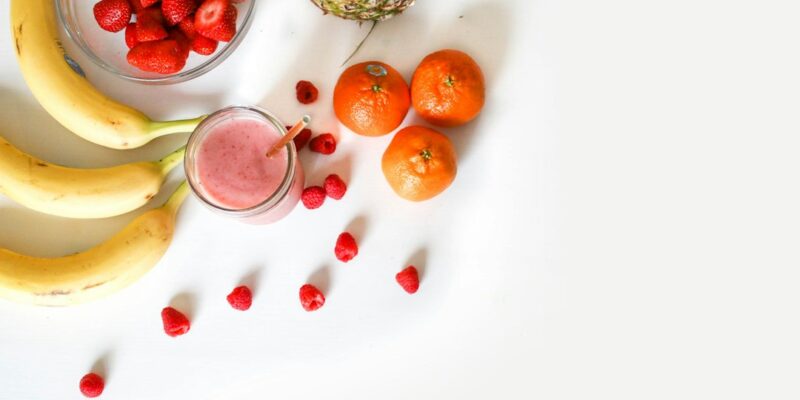
Boost Your Blood: The Importance of Nutrition for Anemia Management
Anemia is a condition characterized by a decrease in the number of red blood cells or a decrease in the amount of hemoglobin in the blood. Hemoglobin is responsible for carrying oxygen from the lungs to the rest of the body, so when there is a deficiency, it can lead to fatigue, weakness, and other symptoms. There are several types of anemia, including iron-deficiency anemia, vitamin deficiency anemia, and anemia caused by chronic diseases.
The causes of anemia can vary depending on the type. Iron-deficiency anemia is the most common type and is often caused by a lack of iron in the diet or poor absorption of iron by the body. Vitamin deficiency anemia can be caused by a lack of certain vitamins, such as vitamin B12 or folate, which are necessary for red blood cell production. Anemia caused by chronic diseases can be a result of underlying health conditions, such as kidney disease or cancer.
Key Takeaways
- Anemia is a condition caused by a lack of red blood cells or hemoglobin in the blood.
- Nutrition plays a crucial role in managing anemia, as certain nutrients are essential for red blood cell production.
- Iron-rich foods such as red meat, spinach, and lentils can help prevent and treat anemia.
- Vitamin C can enhance iron absorption, while folate and vitamin B12 are vital for red blood cell formation.
- Adequate protein intake and hydration are also important for managing anemia, while certain foods should be avoided.
The Role of Nutrition in Anemia Management
Nutrition plays a crucial role in managing anemia. A well-balanced diet that includes essential nutrients can help support red blood cell production and prevent deficiencies that can lead to anemia. Nutrients such as iron, vitamin C, folate, vitamin B12, and protein are particularly important for maintaining healthy levels of red blood cells.
Iron is essential for the production of hemoglobin, which carries oxygen to the body’s tissues. Without enough iron, the body cannot produce enough hemoglobin, leading to anemia. Vitamin C is important for enhancing iron absorption from plant-based sources, while folate and vitamin B12 are necessary for red blood cell formation. Protein is also crucial for hemoglobin production.
Essential Nutrients for Red Blood Cell Production
There are several essential nutrients that are necessary for red blood cell production and can help manage anemia. These include iron, vitamin C, folate, vitamin B12, and protein.
Iron is a key nutrient for red blood cell production. It is found in both animal and plant-based foods. Animal sources of iron, known as heme iron, are more easily absorbed by the body. These include red meat, poultry, and seafood. Plant-based sources of iron, known as non-heme iron, include beans, lentils, spinach, and fortified cereals. Consuming foods rich in vitamin C along with iron-rich foods can enhance iron absorption.
Folate and vitamin B12 are essential for red blood cell formation. Folate is found in foods such as leafy green vegetables, citrus fruits, and beans. Vitamin B12 is primarily found in animal products like meat, fish, eggs, and dairy. For those following a vegetarian or vegan diet, it is important to ensure an adequate intake of these nutrients through fortified foods or supplements.
Protein is necessary for the production of hemoglobin. Good sources of protein include lean meats, poultry, fish, eggs, dairy products, beans, and legumes.
Iron-Rich Foods for Anemia Prevention and Treatment
| Food | Serving Size | Iron Content (mg) |
|---|---|---|
| Beef liver | 3 ounces | 4.5 |
| Spinach | 1 cup cooked | 6.4 |
| Lentils | 1 cup cooked | 6.6 |
| Dark chocolate | 1 ounce | 3.3 |
| Tofu | 1/2 cup | 3.4 |
| Quinoa | 1 cup cooked | 2.8 |
Iron is a crucial nutrient for managing anemia. Including iron-rich foods in your diet can help prevent and treat iron-deficiency anemia. Some examples of iron-rich foods include:
– Red meat: Beef and lamb are excellent sources of heme iron.
– Poultry: Chicken and turkey are also good sources of heme iron.
– Seafood: Shellfish like clams, oysters, and mussels are high in heme iron.
– Beans and legumes: Kidney beans, chickpeas, lentils, and soybeans are rich in non-heme iron.
– Spinach: This leafy green vegetable is packed with non-heme iron.
– Fortified cereals: Many breakfast cereals are fortified with iron, making them a convenient option for boosting iron intake.
It is important to note that the body absorbs heme iron more efficiently than non-heme iron. To enhance the absorption of non-heme iron, it is recommended to consume vitamin C-rich foods along with iron-rich foods.
Vitamin C and Anemia: Enhancing Iron Absorption
Vitamin C plays a crucial role in enhancing the absorption of iron from plant-based sources. It helps convert non-heme iron into a form that is more easily absorbed by the body. Including vitamin C-rich foods in your diet can help maximize the benefits of iron-rich foods for managing anemia.
Some examples of vitamin C-rich foods include:
– Citrus fruits: Oranges, grapefruits, lemons, and limes are all excellent sources of vitamin C.
– Berries: Strawberries, blueberries, raspberries, and blackberries are packed with vitamin C.
– Kiwi: This tropical fruit is a great source of vitamin C.
– Bell peppers: Red, yellow, and green bell peppers are rich in vitamin C.
– Tomatoes: These juicy fruits are not only high in vitamin C but also contain lycopene, another beneficial nutrient.
Incorporating these vitamin C-rich foods into your anemia management plan can help enhance iron absorption and support red blood cell production.
Folate and Vitamin B12: Vital for Red Blood Cell Formation

Folate and vitamin B12 are essential nutrients for red blood cell formation. Deficiencies in these nutrients can lead to anemia. Including folate and vitamin B12-rich foods in your diet can help prevent and treat anemia.
Folate is found in a variety of foods, including leafy green vegetables like spinach and kale, citrus fruits like oranges and grapefruits, beans and legumes, and fortified cereals. It is important to note that folate from food sources is more easily absorbed by the body than folic acid, the synthetic form of folate found in supplements and fortified foods.
Vitamin B12 is primarily found in animal products like meat, fish, eggs, and dairy. For those following a vegetarian or vegan diet, it is important to ensure an adequate intake of vitamin B12 through fortified foods or supplements.
Including these folate and vitamin B12-rich foods in your anemia management plan can help support red blood cell formation and prevent deficiencies.
Protein and Anemia: Building Blocks for Hemoglobin
Protein is an essential nutrient for the production of hemoglobin, the protein responsible for carrying oxygen in the blood. Including protein-rich foods in your diet can help support red blood cell production and manage anemia.
Good sources of protein include lean meats like chicken and turkey, fish, eggs, dairy products like milk and yogurt, beans and legumes, and nuts and seeds. It is important to choose lean sources of protein to minimize saturated fat intake.
Incorporating these protein-rich foods into your anemia management plan can help provide the building blocks necessary for hemoglobin production.
Foods to Avoid for Anemia Management
While it is important to focus on consuming nutrient-rich foods to manage anemia, there are also certain foods that should be avoided or limited as they can worsen anemia symptoms.
Foods high in phytates, such as whole grains and legumes, can inhibit the absorption of iron. However, this does not mean that these foods should be completely eliminated from the diet. Soaking, fermenting, or sprouting these foods can help reduce their phytate content and improve iron absorption.
Calcium-rich foods like dairy products can also interfere with iron absorption when consumed at the same time as iron-rich foods. It is recommended to separate the consumption of calcium-rich foods from iron-rich foods by a few hours.
Additionally, excessive consumption of caffeine and alcohol can interfere with iron absorption and increase the risk of developing anemia. It is best to limit the intake of these substances for optimal anemia management.
Hydration and Anemia: The Importance of Fluid Intake
Hydration plays a crucial role in anemia management. Dehydration can worsen anemia symptoms and lead to fatigue and weakness. It is important to maintain adequate fluid intake to support red blood cell production and overall health.
Water is the best choice for hydration, but other fluids like herbal tea, fruit-infused water, and low-sugar electrolyte drinks can also contribute to hydration. It is important to avoid excessive consumption of sugary beverages and caffeinated drinks, as they can have a diuretic effect and contribute to dehydration.
Incorporating adequate fluid intake into your anemia management plan can help support red blood cell production and alleviate symptoms of fatigue and weakness.
Incorporating Nutritious Foods into Your Anemia Management Plan
In conclusion, nutrition plays a crucial role in managing anemia. Including essential nutrients like iron, vitamin C, folate, vitamin B12, and protein in your diet can help support red blood cell production and prevent deficiencies that can lead to anemia.
Iron-rich foods like red meat, poultry, seafood, beans, legumes, spinach, and fortified cereals are important for managing iron-deficiency anemia. Vitamin C-rich foods like citrus fruits, berries, kiwi, bell peppers, and tomatoes can enhance iron absorption. Folate-rich foods like leafy green vegetables, citrus fruits, beans, legumes, and fortified cereals are vital for red blood cell formation. Vitamin B12-rich foods like meat, fish, eggs, and dairy are also important for preventing deficiencies.
Protein-rich foods like lean meats, poultry, fish, eggs, dairy products, beans, legumes, nuts, and seeds are necessary for hemoglobin production. It is important to avoid or limit foods that can interfere with iron absorption, such as those high in phytates and calcium. Adequate hydration is also crucial for anemia management.
By incorporating these nutritious foods into your anemia management plan, you can support red blood cell production and alleviate symptoms of fatigue and weakness. It is always recommended to consult with a healthcare professional or registered dietitian for personalized advice and guidance on managing anemia through nutrition.
FAQs
What is anemia?
Anemia is a condition in which the body lacks enough healthy red blood cells to carry adequate oxygen to the body’s tissues.
What are the symptoms of anemia?
The symptoms of anemia include fatigue, weakness, pale skin, shortness of breath, dizziness, cold hands and feet, headache, and chest pain.
What are the causes of anemia?
Anemia can be caused by a variety of factors, including iron deficiency, vitamin deficiency, chronic diseases, blood loss, and genetic disorders.
How can nutrition help with anemia?
Nutrition can help with anemia by providing the body with the necessary nutrients to produce healthy red blood cells. This includes consuming foods rich in iron, vitamin B12, and folate.
What foods are rich in iron?
Foods that are rich in iron include red meat, poultry, fish, beans, lentils, tofu, spinach, and fortified cereals.
What foods are rich in vitamin B12?
Foods that are rich in vitamin B12 include meat, fish, poultry, eggs, and dairy products.
What foods are rich in folate?
Foods that are rich in folate include leafy green vegetables, citrus fruits, beans, peas, and fortified cereals.
Can supplements help with anemia?
Supplements can help with anemia, but it is important to consult with a healthcare provider before taking any supplements to ensure they are safe and effective for your individual needs.


















